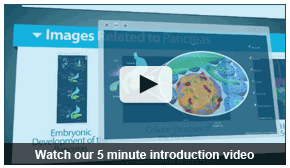-
Embryonic Development
-
Stem Cell Differentiation
-
Regenerative Medicine
Placenta-derived cells (Celgene)
Human placenta-derived adherent cells (PDAC®) is a novel, culture-expanded cell population derived from normal, full-term human placental tissue. The cells are plastic-adherent and undifferentiated in vitro. PDAC are genetically stable, displaying a normal diploid chromosome count, and a normal karyotype and exhibit normal senescence after prolonged culture periods.
Umbilical cord blood is allowed to drain from the placentas, which are then carefully dissected. The internal area (approximately 1 cm3) of central placenta lobules is washed several times in phosphate-buffered saline (PBS) and then mechanically minced, hemolyzed and trypsinized (37°C for 5 minutes). The homogenate is subsequently pelleted by centrifugation and suspended in α-minimum essential medium (MEM) or Dulbecco's modified Eagle's medium (DMEM), supplemented with fetal bovine serum (FBS; 10-15%), penicillin (100 U/ml), and streptomycin (100 μg/ml). Cultures are maintained at 37°C in a humidified atmosphere with 5% CO2. Three to five days after initiating incubation, the small digested residues are removed and the culture is continued. Within approximately 3-4 weeks, some colonies containing 50 or more fibroblast-like cells that are more than 50% confluent, develop. The colonies are trypsinized (0.05%), and replated at a 1:3-4 dilution.



